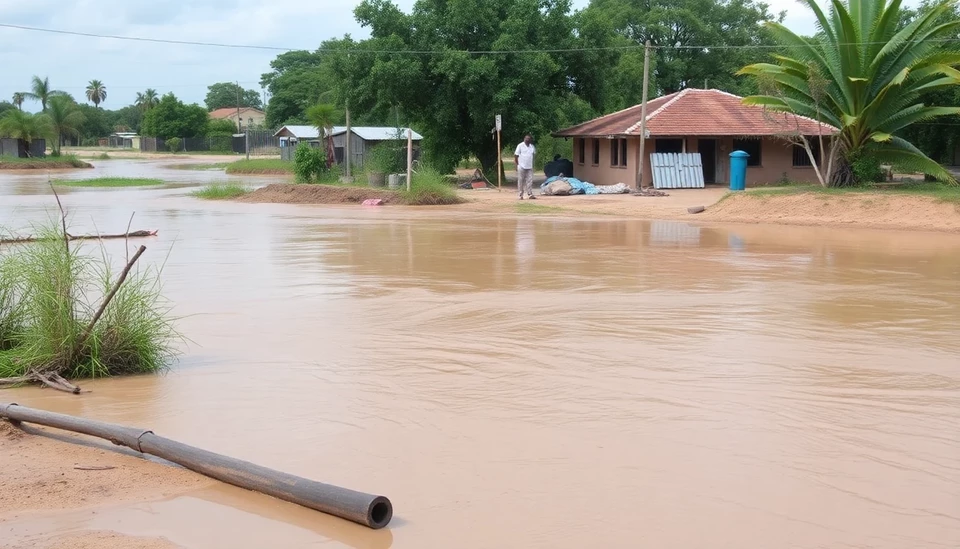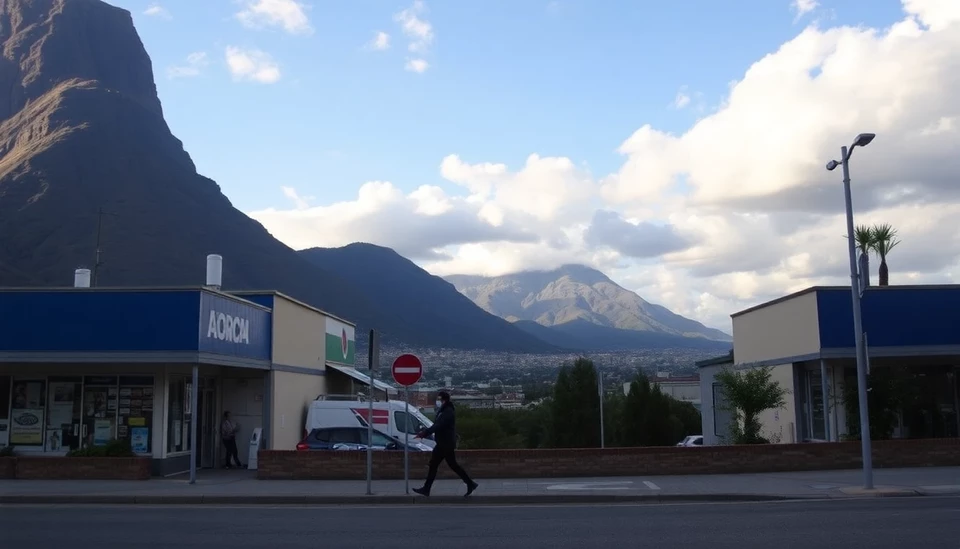
In a significant disruption to regional trade, South Africa has announced the closure of its primary trade route with Botswana due to unprecedented rainfall and subsequent flooding. This decision, aimed at ensuring the safety of travelers and the integrity of the infrastructure, has highlighted the growing impact of climate-related events on transportation and trade in Southern Africa.
Authorities in South Africa reported that the record-breaking rains, which have been persistent over recent weeks, caused severe damage to roads and other critical infrastructure. The trade route in question has been deemed unsafe, leading to the suspension of all transport activities on the link that connects the two nations. This closure is particularly consequential as it hampers the movement of goods and essential supplies, disrupting businesses and economies reliant on cross-border trade.
The South African government is currently assessing the extent of the damage caused by the flooding, with initial reports indicating that several sections of the roadway have been washed away or rendered impassable. Officials have urged citizens and businesses to seek alternative transport routes while repair and recovery efforts are underway. The South African Weather Service has issued warnings for more rain in the forecast, which could exacerbate the already precarious situation.
Businesses on both sides of the border are feeling the sting of this trade route's closure. Many local merchants and transport companies that depend on the flow of goods across this artery are struggling to adapt amidst the uncertainty. Statements from industry groups suggest that the economic ramifications could reach far beyond the immediate impact of the route’s closure, affecting the supply chains and increasing prices for consumers.
In response to the crisis, both South African and Botswana officials have begun to work together to explore alternative mechanisms for transporting goods. While no timeline has been provided for the reopening of the trade route, discussions are ongoing to establish emergency frameworks to ensure that vital supplies can still reach communities in need during this challenging period.
This incident serves as a stark reminder of how climate change is influencing weather patterns and creating challenges for infrastructure across the globe. Experts warn that regions such as Southern Africa will likely continue to face more extreme weather events, which could further strain already vulnerable ecosystems and economies.
As regional leaders assess the situation, community support and proactive measures will be crucial in mitigating the economic fallout from the trade route's closure. The situation remains under close observation, and stakeholders are expected to remain adaptable as they navigate the challenges posed by both the climate crisis and the logistical upheaval resulting from this natural disaster.
As authorities work to restore normalcy, traders and consumers alike must brace for potential supply shortages and rising costs in the meantime.
#SouthAfrica #Botswana #Flooding #TradeRouteClosure #ClimateImpact #InfrastructureDamage #RegionalTrade #EmergencyResponse
Author: Daniel Foster




